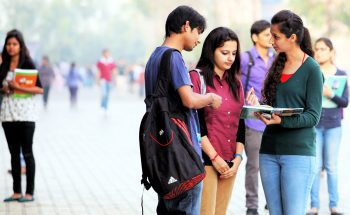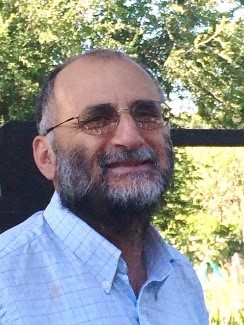April 17th, 2018
By Andreas Toupadakis, Ph.D.
Contributing writer for Wake Up World
A 2017 article in The Times of India, titled Migrating to United States Likely to Get Easier for Educated Indians, reported that, “under the new legislation proposed by two Republican Senators and backed by President Trump, the educated elite will have first dibs on permanent residency — also called Green Cards — coveted by many prospective immigrants that usually and eventually results in citizenship.”
As the article notes, this means India will continue to be “leached of even more of its best and brightest.” It also means that, if Trump’s plan to attract more Indian students, increasing numbers of Indian youths will not only face the cultural challenges of immigration, adapting not only to the university system and a potentially unwelcoming political climate, they will also be subject to the same mental health epidemic facing American students today.
[pro_ad_display_adzone id=”110028″]
Indian Students in America
According to migrationpolicy.org, there were “2.4 million Indian immigrant residents in the United States as of 2015. This makes the foreign born from India the second-largest immigrant group after Mexicans.” India continues to be the #1 country of birth for foreign-born scientists and engineers in U.S., with 950,000 Indian-born scientists and engineers working in the United States, according to a 2016 report.
This is creating a massive problem for India, as the “brain drain” of talented young people from India to the U.S. continues. “A fraction of the scientists and engineers are returning. … Less than 50,000 have come back. This is just 5% of 950,000 immigrants in the U.S.”, says RA Mashelkar, former director general, CSIR India.
While this trend is bad news for India, which continues to lose its best and brightest to the U.S., there are no doubt many benefits to young individuals who immigrate to the U.S. for advanced studies and successfully achieve high paying U.S. jobs. But nothing comes without a cost.
American Education: The Issues and Causes
“When universities were first created, they were meant to embrace and portray an endless and vast vision, an expanse that encompasses humanity and stretches throughout the universe. That is why a ‘university’ is so named.” [source]
In the U.S., we are currently witnessing the corruption of our society at all levels. And it is our young students who are suffering the most, with suicide now the second highest cause of death for teens in the U.S. According to a guide recently published by the University of California, “across the nation more students are manifesting signs of emotional and psychological distress, reflecting a confluence of a multitude of factors affecting the current generation of students.”
Our youth is not a commodity or product, but that is the way we are actually treating them. We have allowed corporate powers to have their way with our education system. Almost any educational reform we see today is market-driven instead value-driven, with standardization, assessment, high-stakes testing, memorization, convenience and consistency the focus. Quality has been replaced by quantity. Learning and creating and innovating and discovering have been replaced with competition, conformity, depression, fear, uncertainty and sleeplessness.
Graduating students then face an increasingly competitive job market, competing for jobs in which innovation, free thinking and indeed our humanity all take a backseat to corporate profits and agendas. This focus is dramatically undermining student mental health, which ultimately not only affects how students learn but also impacts whether they actually finish their degrees, their career potential, and the quality of their lives overall.
According to the 2015 National College Health Assessment report published by the American College Health Association, over a 12-month period, 47% of students felt their situation was hopeless, 35% of students felt so depressed it was difficult to function, and 9% of students had seriously considered suicide.
And the problem is getting worse not better. Institutions around the nation do not have adequate campus counseling programs to deal with this mental health crisis, and refuse to admit the challenges they face regarding student mental health. As a result, university administrations are actively contributing to the problem. (For more information, please read my 2017 article: Student Mental Health Crisis – How Campuses Have Become Mental War Zones for Our Youth.)
So, to India’s students who seek to enroll in U.S. universities, I first encourage you to examine these considerations…
Following In The Footsteps of Wisdom
India, as a beacon of spirituality in the world since ancient times, should never lose any of its youth in the chaos of materialism, of which the American culture and its education system are prime examples.
A wise one, Mata Amritanandamayi (informally known as Amma) reminds us, “Earn money to live, don’t live to earn money. If we reject our values and center our mind and thoughts only on money, all of our love will be fake. … Spirituality insists that [acquiring wealth] be done through righteous means.”
Indian youth should always remember Swami Vivekananda’s life. A key figure in introducing the Indian philosophies of Vedanta and Yoga to the Western world, Vivekananda visited the west to teach the ideals and values of the glorious Indian culture to those who had lost hope in life to the abyss of materialism. He taught them that, without balancing materialism and spirituality, life becomes a burden, then returned to his country to continue supporting his own people.
Indian students today should be encouraged to follow in his footsteps, rather than to follow American teens down a path of industrial indoctrination and spiritual despair.
Many of us mistakenly choose careers based on status, salary potential, or the pressure we receive from our well-meaning parents. Unfortunately, this is not usually what we are most capable of doing or what is the most fulfilling for us.
It is characteristic of our industrialized societies that it makes us lose our individuality to the social machine. By working just for grades, or just to pay our bills, and be “successful”, we are missing the meaning of life. Sooner or later, we will have to lose ourselves in order to find ourselves, not for the sake of the industrial machine but for our own sake, and the sake of the whole world.
Our motto should be, “We work for ourselves in order to serve others” instead of “We work for others in order to serve ourselves.”
Invariably, students with mental challenges are among the brightest minds, gifted with amazing talents, and are often individuals with some of the most excellent characters I have ever met during my career as a teacher. It is therefore no wonder they cannot fit in a world increasingly out of harmony, and into an educational system that predominantly enforces the learning of data and facts instead of expanding the horizons of human perception and understanding. We are losing our best minds to this historic mental health epidemic.
India, a beacon of spirituality in the world, must never lose its best and brightest to the chaos of materialism and the mental health crisis it has created, but instead learn to innovate and integrate its unique spirituality into everything it does — and show the rest of the world how it’s meant to be done.
“India has been the most vibrant and colorful culture upon the earth for many millennia. Let us make it prosperous once again, as it is not just a Nation but a treasure to the world.” — Sadhguru
Related articles by Andreas Toupadakis, Ph.D:
- Student Mental Health Crisis – How Campuses Have Become Mental War Zones for Our Youth
- Creating Your Future – Arise Great Warrior, Arise!
- Awaken Students! Education is for Self-Awareness and Inner Growth
About the author:
Born on the beautiful island of Crete in Rethymno, Greece, Andreas Toupadakis received his primary education while living in the mountainous village of Argiroupoli near the coast. After receiving his B.S. in Chemistry from the Aristotelian University in Thessaloniki, he began graduate school in the U.S. He has lived in the U.S. since 1978, and he received his Ph.D. degree in Chemistry from the University of Michigan in 1990.
Since 2005, Dr. Toupadakis has been teaching at UCDavis as a lecturer at the Department of Chemistry. The courses he teaches include the General Chemistry 2ABC series for first-year students majoring in science and engineering, the Organic Chemistry 118ABC series and the Organic Chemistry 8AB series for second-year students, and the Physical Chemistry for Life Sciences 107AB series for third- and fourth-year students. His scientific interests are in better teaching methods and chemistry book writing and reviewing. His lectures are tuned toward conceptual learning via the Socratic dialogue method.
He is the author of three chemistry study guides, CHEMISTRY READER 2A, CHEMISTRY READER 2B, and CHEMISTRY READER 2C and their corresponding solutions manuals, which have been received with great enthusiasm by students taking the CHEMISTRY 2ABC series, his teaching assistants, and colleagues. Andreas also teaches two popular freshman seminars at UC Davis every quarter entitled, “From Self-Awareness to Personal Growth for True Success in and After College” and “World Music as a Means to Embrace Diversity and Reach Self-Discovery”.
Besides teaching chemistry at UC Davis, he has also taught chemistry at several other colleges and universities in the U.S. and in Greece, including the University of Crete in Iraklion, and the Nutrition College at the Technology Education Institute in Sitia, Crete. Dr. Toupadakis has also worked at Los Alamos National Laboratory, Lawrence Livermore National Laboratory, and in industry at Dow Corning.
In addition, Dr. Toupadakis has given lectures and written articles on life planning through wise career choice, on career change and career satisfaction, and on sustainable living across campuses in the U.S., Greece, Japan and recently in India. His writings have appeared in a number of newspapers and electronic magazines. Andreas often reminds his students of Gandhi’s words, “Be the change you want to see in the world”; of Socrates’, “Know your Self”; of Einstein’s, “Imagination is more important than knowledge” and of Amma’s, “Where there is love there is no effort”.
Dr. Toupadakis has being tirelessly lecturing on environmental issues and peaceful solutions at universities and colleges, including MIT, Tufts University, the University of Notre Dame, San Francisco State University, U.C. Berkeley and Waseda University in Tokyo. In January 2000, Dr. Toupadakis resigned his position at LLNL and took his story public. His landmark resignation is a rare and inspiring case in which a scientist has left a weapons program to actively contribute the peace movement. Among other recognitions, Dr. Toupadakis was awarded the Alliance for Nuclear Accountability (ANA) Certificate of Honor in May 2000, for moral integrity of the highest order in refusing to work on nuclear weapons research and encouraging his colleagues to renounce this work as well. He spoke both times as a keynote speaker at the 2000 World Conference against A H Bombs in Hiroshima and at the Nuclear Non-Proliferation Treaty Review Conference at the United Nations in New York on May 3, 2000.
Dr. Toupadakis, together with his friends and students, has started to establish in Greece, two hours from Athens, “NECTAR,” (next to NOOSFERA) a place for living in and with nature. In NECTAR, community members will be connecting with the land while pondering and practicing the teachings of great teachers such as Socrates, Pythagoras and Apollonius of Tyana.
His personal web site, is devoted to student success during and after college. Dr. Toupadakis spends a great deal of his free time with his students at his organic garden plot, which is provided by the Experimental College Community Garden of UC Davis. He also encourages his students to have their own garden plots. The Department of chemistry of UCDAVIS in 2011 nominated him for the Academic Federation Award for Excellence in Teaching. He is the winner of the 7th annual ASUCD Excellence in Education Award as the overall educator of the year 2009 at UC Davis.
You can contact Dr. Toupadakis via email here.
[pro_ad_display_adzone id=”110027″]








